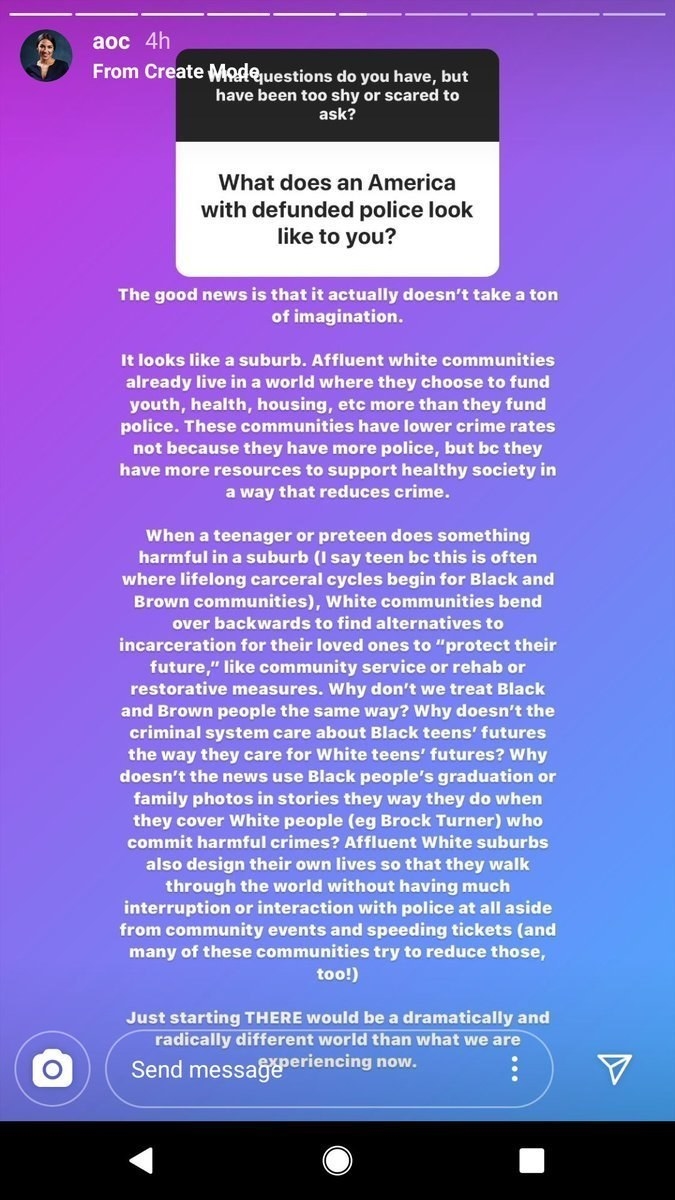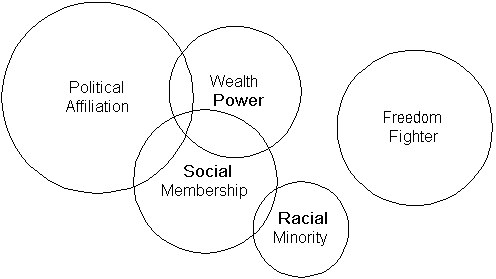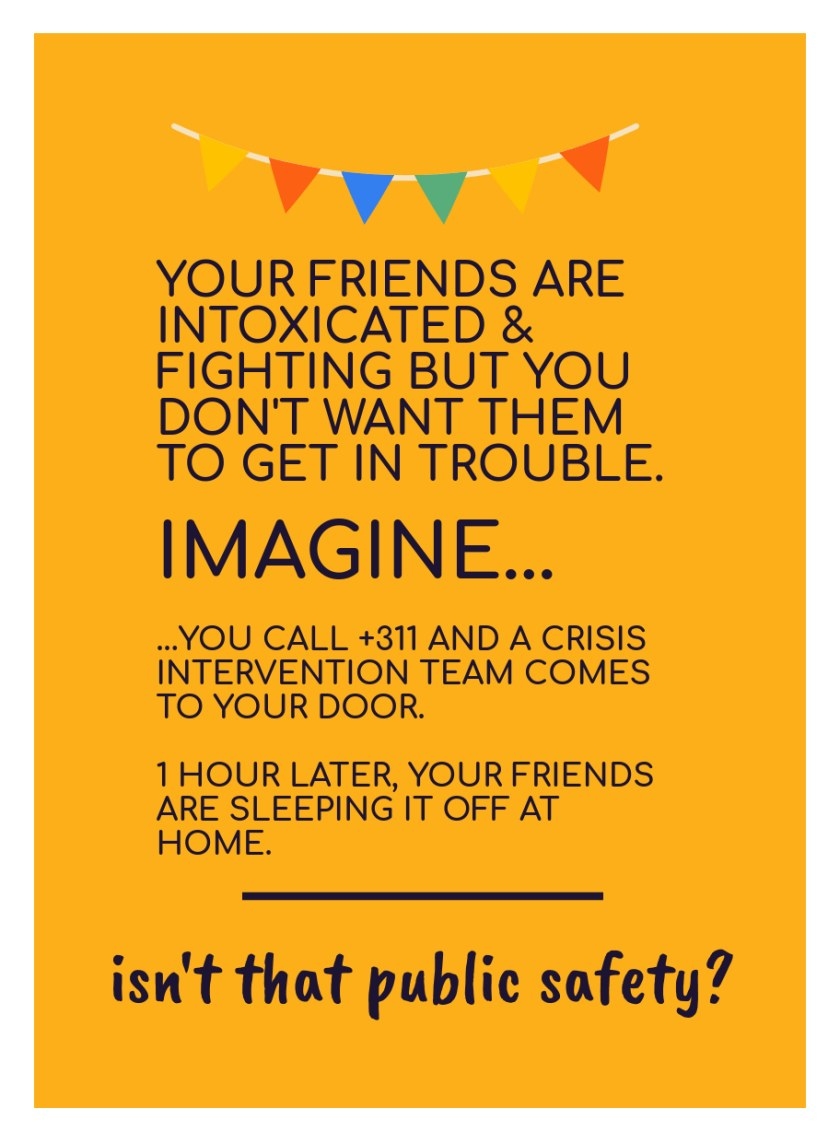
You may have seen the hashtag #abolishpolice or #defundpolice in relation to Black Lives Matter movements. “Abolish police?”, you ask yourself, “But what would happen to the murderers and rapists? How would society be safe?” For the average American, it might be hard to imagine a society without police. But the idea of a police-free future is not naive or unrealistic. In fact, intersectional Black feminists have been pushing for police abolition for decades.
With police abolition at the forefront of political discourse, it’s time to talk about the meaning of police and prison abolition, alternatives to policing, and how a world without police would look. Fortunately, it isn’t hard to imagine. Prominent thinkers like Alexandria Ocasio-Cortez, Carol Gilligan, and bell hooks have done the legwork to advance theories and models that reframe police abolition and provide a glimpse of a police-free future. We can manifest a world beyond police.
Abolish Police? How Will Society be Safe From Murderers, Rapists, and Other Criminals?
Many abolitionists will answer this question with another question: Do you feel safe now, with the way things are? Do you live in a safe world free from crime, and can rest easy that all rapists and murderers are in jail? Even for the most privileged citizens, the answer is most likely no.
Serial killers get away with their crimes about 40% of the time (the Golden State Killer was on the loose for decades, and when he was finally caught in 2018, it turns out… *wait for it*… he was a cop!). Child molesters, rapists, and abusers aren’t always convicted, and if they are, up to 33 percent are released on parole. Many of the most “dangerous” criminals are already on the loose.
This question is somewhat understandable in a system where we have been conditioned to view the police as protectors and civil servants.
“In our childhoods, we are taught police are these wonderful, peaceful people who will save and protect us… when we grow up and find out [they] kill people, go against their training and arrest people for doing literally nothing, we don’t accept it,” said Artist Gabi Abrão (@sighswoon) on Instagram. “We think of the cop that visited our Kindergarten class and let us try on his hat.”
The truth is that all cops participate in a system designed to actively uphold the prison-industrial complex that incarcerates almost 1/4 of the world’s prison population.
“When we say abolish the police, we also mean the prison system in this country,” said the Slow Factory Foundation.
If you’re curious about how police and prison abolition are related, the documentary 13th (Netflix) is a great place to start. Essentially, a loophole in the 13th amendment allows unpaid labor of prisoners, effectively making the modern-day prison system an extension of slavery.
A World Without Cops Looks Kinda Like… a Suburb
When asked “What does an America with defunded police look like to you?”, Representative Alexandria Ocasio-Cortez (AOC) replied, “The good news is it doesn’t take a ton of imagination. It looks like a suburb. Affluent white communities already live in a world where they choose to fund youth, health, housing, etc more than they fund police. These communities have lower crime rates, but because they have more resources to support a healthy society in a way that reduces crime.”
AOC made a great point. If you live in a white, affluent suburb, you already have a taste of what police abolition is like. If your kids get caught shoplifting, they get sentenced to community service. If you have a mental breakdown, you can get psychiatric help; if you have a drug problem, you can go to rehab, etc. The community bends over backward to provide alternatives to jail. This is what it looks like to invest in community programs, as an alternative to policing.
On the other hand, those who are not white and/or affluent routinely go to jail for the exact same crimes. An ever-increasing number of Black folks are killed for no reason at all, simply minding their own business, sleeping in their bed, going for a run, etc. What if we started caring about Black people’s futures the same way we cared about white people’s’?
AOC’s response on Instagram to, “What does an America with defunded police look like?”
The bottom line is that giving the state power to inflict violence at its discretion is never going to work out for marginalized communities because the system was built to keep them marginalized and protect the interests of the powerful elite.
Instances of police brutality are not an exception to the rule, they are the rule. Police only know one way to approach civil unrest, and that is through violence. Case in point: When people took to the streets to protest George Floyd’s murder, The police responded by doubling down with more police brutality, the same way they have since… well, ever.

Intersectional Feminists for Police Abolition
View this video on YouTube
Intersectional and Black feminists have been discussing abolition for decades. To intersectional feminists, the links between police brutality and white supremacist heteropatriarchy are clear. Feminists would argue that the aggressive approach adopted by police is a result of toxic masculinity and patriarchal culture that promotes violence as an acceptable form of control. Phrases like “the war on drugs,” “when the looting starts, the shooting starts,” “the ends justify the means,” and even “speak softly and carry a big stick” seem to imply acts of violence upon marginalized groups are ethical, moral, and justified.
Intersectional feminists have been working on dismantling the overlapping systems of oppression for decades. In her inaugural essay, Margin to Center, bell hooks says feminism is “a struggle to eradicate the ideology of domination that permeates Western culture… as well as a commitment to reorganizing society so that the self-development of people can take precedence over imperialism, economic expansion, and material desires.”
Sound familiar to abolition? In this case, the ideology of domination is enforced by the police state, which protects material wealth over human potential and development.
The premise of Margin to Center is that we all have social circles based on wealth, race, gender, power, etc. Those with privilege are located closer to the “inner circle” and therefore have a responsibility to bring those on the margins (the outside of the circle) to the center. In other words, it’s the responsibility of the oppressor, not the oppressed, to change.

How Feminist (Care) Ethics Support a Police-Free Future
Alternatives to Police



